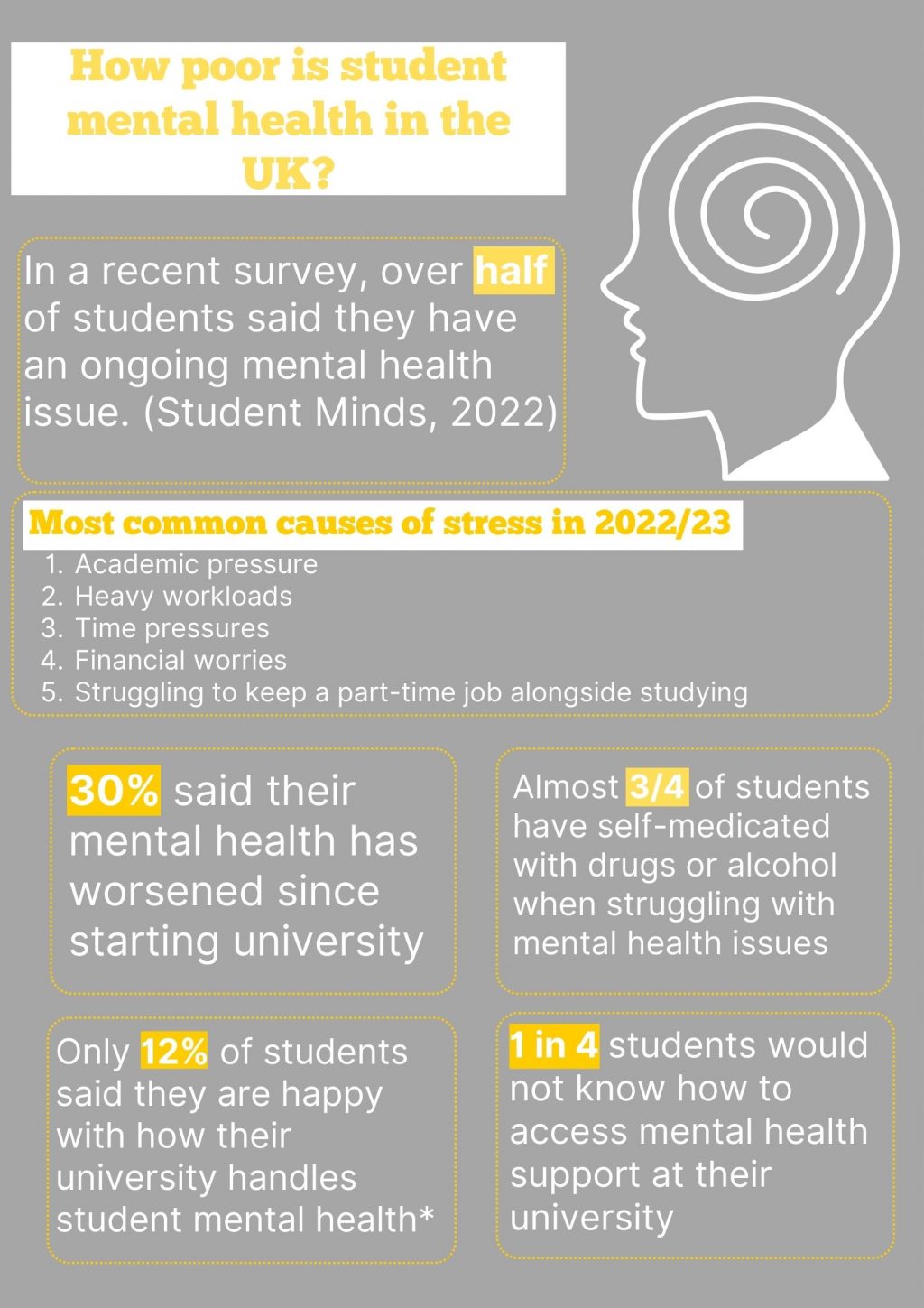Two recent surveys have highlighted alarming numbers of mental health problems and overwhelming frustrations at university services.
Students are asking serious questions of university mental health services as they face unprecedented demand, with many saying they are not fit for purpose.
The surveys, conducted by Student Minds and The Tab, asked over 5,000 students about their overall mental health whilst being at university, but also what students think of mental health services on offer.
“Students face unique stresses that can test their resilience and these can often trigger mental health challenges. Feedback and a rise in demand for services indicate an increasing prevalence of mental health concern among our student community,” said Gareth Hughes, Head of Student Health and Wellbeing at Cardiff University.

Almost 70% of UK students suffer from a mental illness, with anxiety and depression the two most common issues.
Students at Cardiff University are particularly suffering, with 70.6% saying they are unhappy with the quality of mental health services there.
“We know that suicide rates in under-25s are increasing at an alarming rate, so it’s really important that universities are able to support their students,” said Wendy Robinson, Head of Services at suicide prevention charity CALM, as part of the survey.
With this rise in mental health issues, Cardiff University has already tried to adapt its existing services.
“We’ve expanded our support provision through tiered services at Cardiff,” says Mr. Hughes. “It involves instances of suicide, suicidal thoughts, or supporting victims of violence and abuse.”
Despite this, data from the survey shows Cardiff students are frequently turning to alternative means of managing mental health problems.
Almost 60% admit to having used alcohol to self-medicate.
The UK government is pushing to introduce a legal duty of care for universities, but institutions are already indicating they must work with the resources they have.
“Another key issue for us is managing expectation changes, particularly in terms of either misconceived or perceived duty of care and treatment,” said Mr. Hughes. “This involves clear communication and positive partnerships with the NHS and community services.”
While students across the UK are clearly unhappy with the state of their university mental health services, Mr. Hughes is keen to stress that institutions are doing all they can to provide adequate support.
“Our focus remains on offering support within our remit and established governance to ensure students receive appropriate care,” he said. “While universities aim to provide comprehensive support, it’s equally important to guide students towards specialized or emergency care when they need it.”

